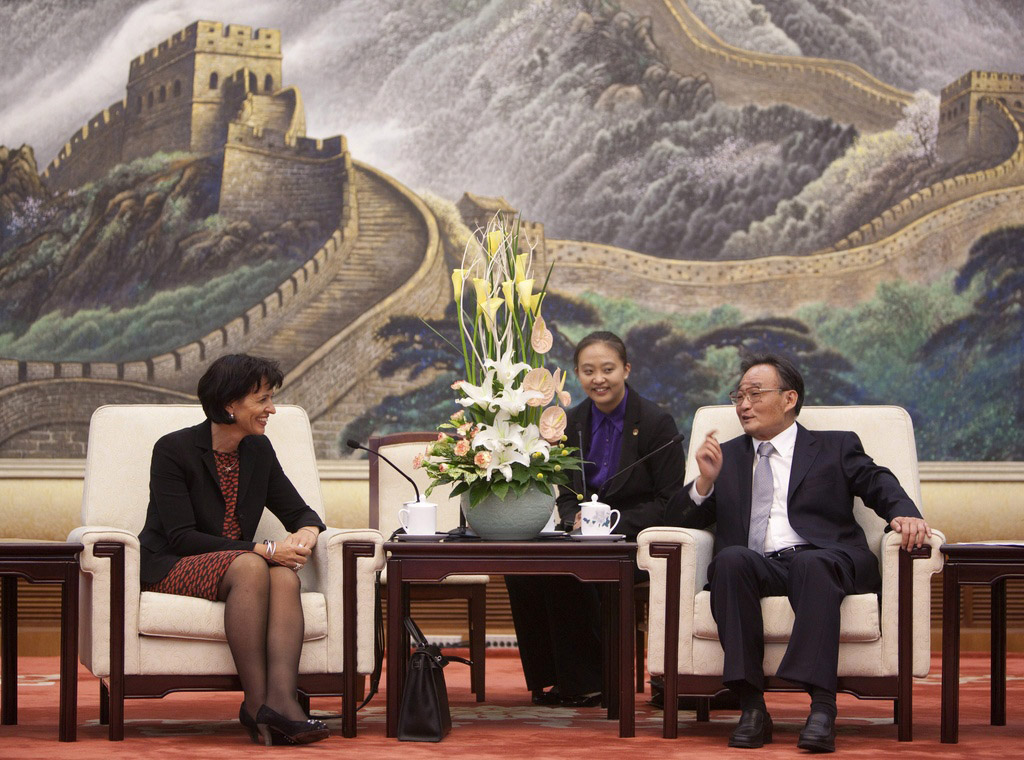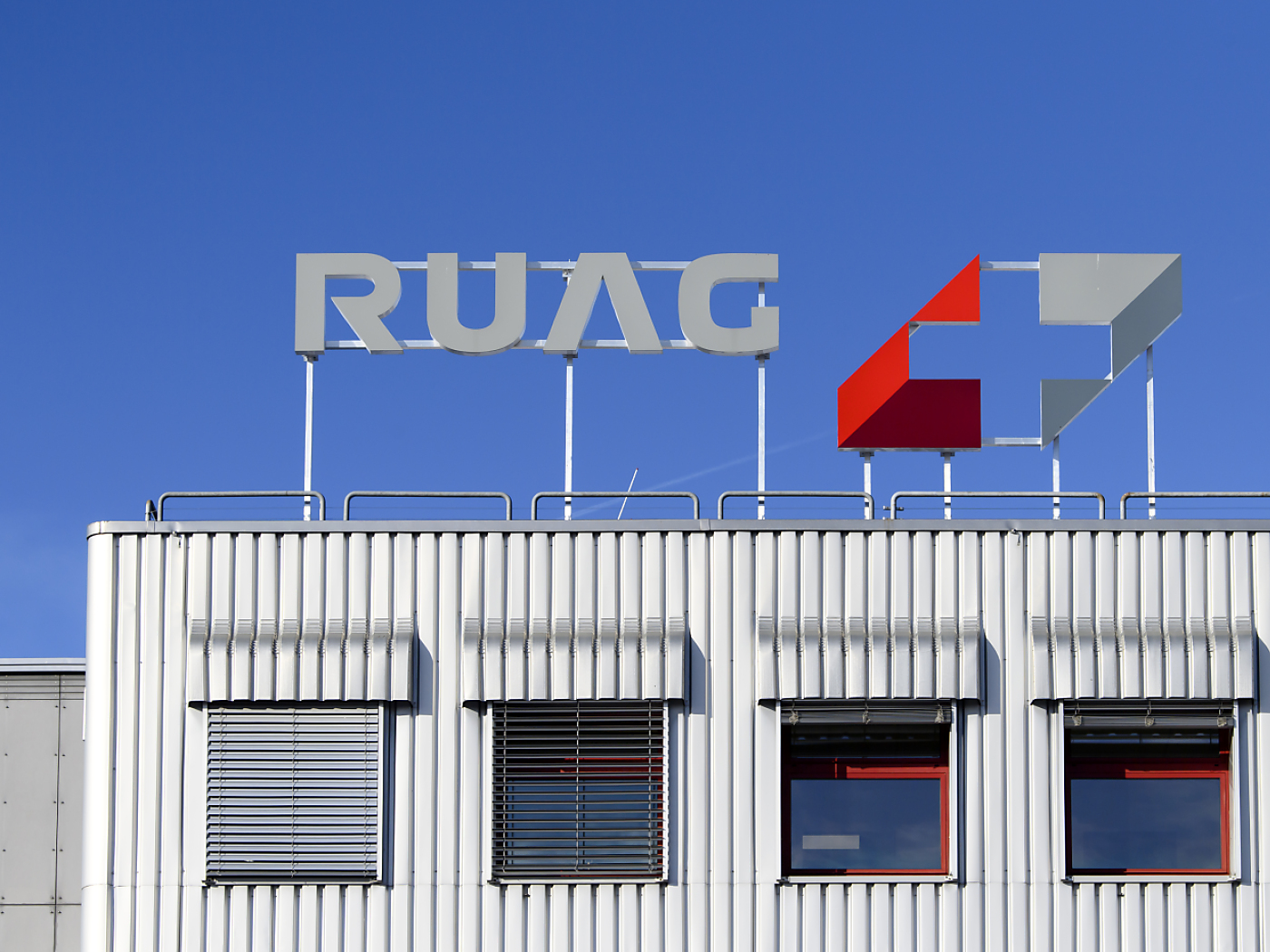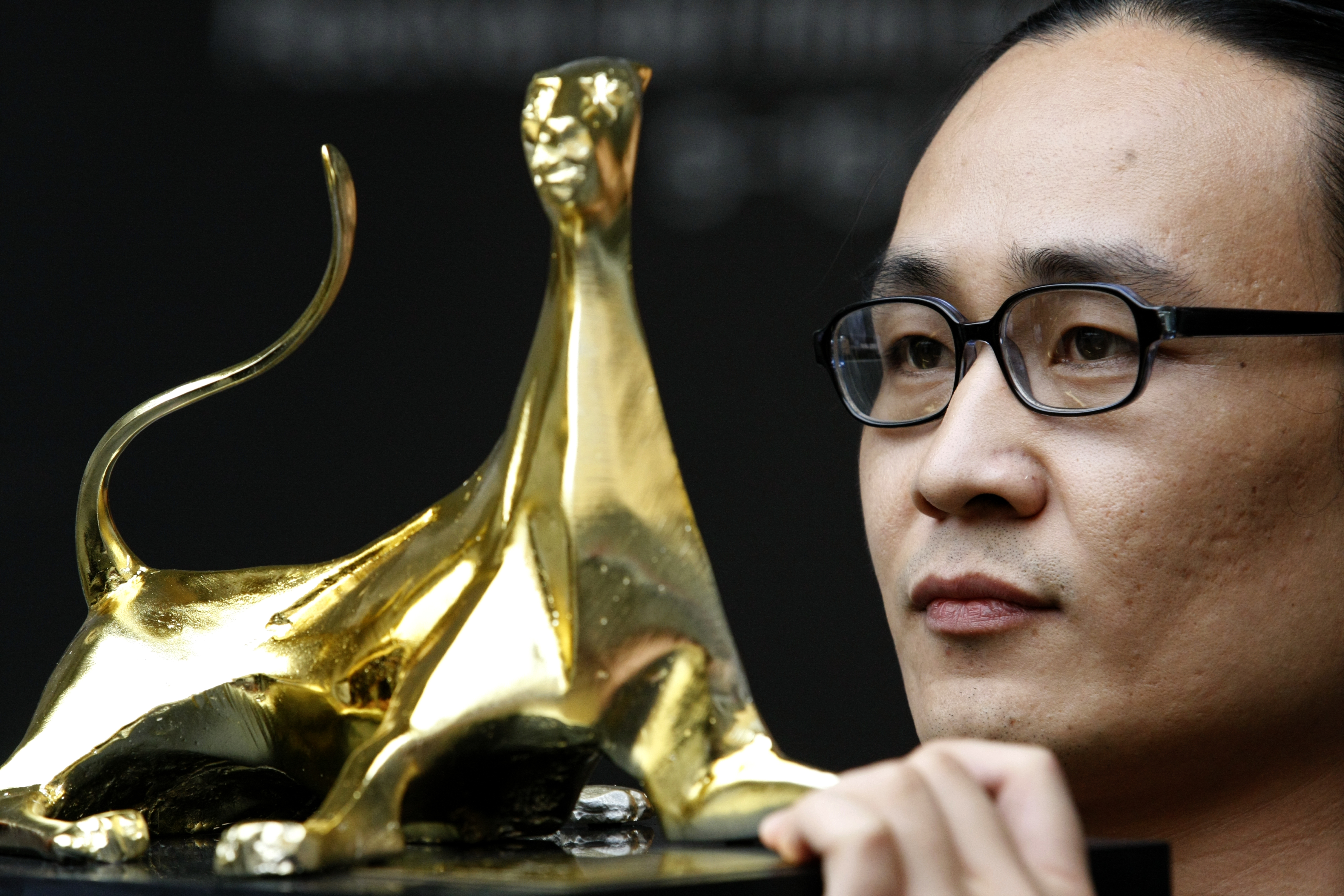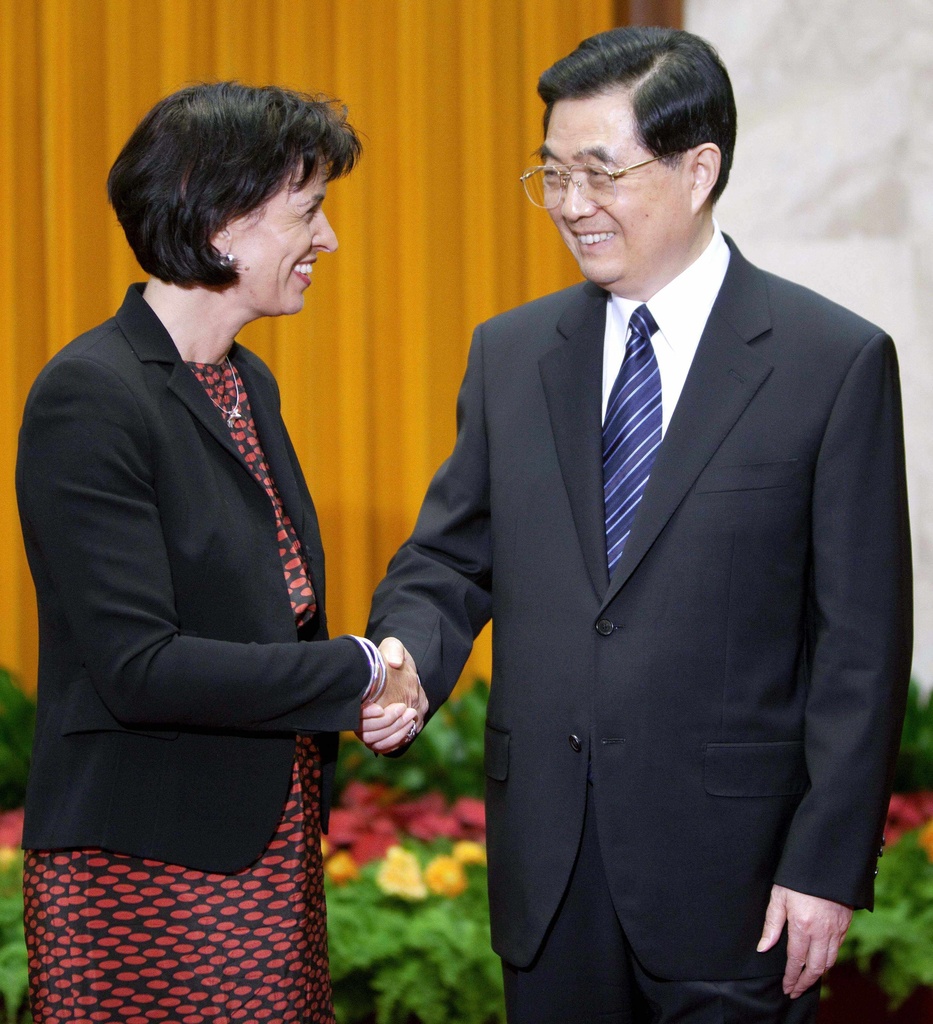Swiss-Sino relations move ahead – but where?

Switzerland could soon celebrate being among the first Western countries to sign a free trade accord with China, but experts are unsure if it’s a success or a burden.
Swiss President Doris Leuthard returned triumphant from China last week, together with business big wigs who accompanied her, after gaining a promise that the two nations would be embarking on a free trade agreement.
With most of the world courting Chinese economic ties, some say Switzerland may have pulled a fast one over other European countries. At this point Norway is well-placed and New Zealand can boast of having been the first major developed economy to sign an agreement with Beijing in 2008.
So do the Swiss fancy themselves as central to Chinese interests?
“Studying the feasibility [of the accord] happened relatively quickly, just a few months,” says China specialist Gerald Béroud. “It seems that the Chinese wanted to go even further. We have to see how the negotiations develop, but with Switzerland, China wants to test out an agreement to see if it can be used as a model for others.”
One thing is certain: with the rise in power of the Chinese economy, there is a scrum to sign deals with Beijing.
“The Chinese are very happy to see countries competing with each other in this vein,” says Jean-Pierre Lehmann, a professor at the IMD Business School. He adds that Beijing could use its negotiations with Switzerland as leverage in dealings with the European Union or Canada, for example.
But Lehmann cautions: “It’s the beginning of negotiations. Concluding them is another thing.”
Intense relations
An expert on China, Lehmann says the country’s dictatorial history cannot be forgotten. “Chinese policy is not always predictable or transparent. These negotiations will take a lot of time and manpower. And it will include some irritations along the way.”
Among the pitfalls, the Swiss market is probably too small to be of great interest to the Chinese. And, as Lehmann explains, China sees itself as being among the five or six major world powers. “Switzerland does not count in this picture.”
On the plus side, Beijing is attracted to Switzerland because of its generous investment in China. The Chinese are also interested in its large companies and technologies, Lehmann says.
“For the past 60 years, economic, technical, scientific and cultural relations between Switzerland and China have been growing,” Béroud said. “They are becoming more intense and extensive, as with most countries. But this is not new.”
Béroud, who founded Sinoptic, a website that aims to foster Swiss-Sino relations, says the growth of relations has been constant since 1978 and Deng Xiaoping’s attempts to open the country.
Partnerships between China and the Swiss federal institutes of technology, the training of senior Chinese officials and dialogue on human rights are just a few examples.
Swiss reputation
In the global rush towards China, Switzerland could have a competitive advantage on two levels, he said. First, it was one of the first Western countries to recognise the new Chinese authorities in 1950. Second, it has a very enviable image inside China.
“Mention Switzerland in any taxi, to any hotel employee or chance encounter, and you’ll immediately be given compliments about our country. [People say it’s] a country with beautiful nature, stability and a technical, precise, extremely professional and refined way of doing things,” Béroud said.
He explains that sectors such as the Swiss watch industry, where luxury products are burdened by high taxes, would benefit from a free trade agreement.
Lehmann says the financial sector would profit too. For him, the issue of protection of brands, products and processes is another crucial point.
“This is a problem for everyone in China. To have a stricter intellectual property regime would be important for the pharmaceutical companies in particular.”
Political minefield
Should Switzerland have an interest in moving closer to China politically? The mere fact that Beijing is becoming a heavyweight on the international scene warrants a good, normal and balanced relationship, says Béroud.
“In many areas, thanks to its international outlook, Switzerland can show that it is a partner or an interesting pathway for China,” he added.
But Lehmann is less convinced. “Does Switzerland have any influence on China on the Iranian issue? No.”
For him, it’s a geopolitical matter. “Switzerland cannot gain anything from the emergence of China,” he said, adding that “the closer one approaches China politically, the more it is in a position to make demands”.
“As in the spirit of Doris Leuthard, Switzerland has an interest in moving closer to China in economics, trade and tourism. Not politics.”
Pierre-François Besson, swissinfo.ch (Translated from French by Jessica Dacey)
China (including Hong Kong) is Switzerland’s main commercial partner in Asia and the fourth market for Swiss products after the European Union, the United States and Japan.
Switzerland exports more to China than it imports, especially in the field of machinery and electronics, chemicals and pharmaceuticals, precision instruments, watches and jewellery. Its imports from China are in the same areas and, increasingly, footwear and textiles.
Some 300 Swiss companies are represented and 700 subsidiaries are based in China, employing tens of thousands of people.
Switzerland is raising its profile there through various names, such the Swiss Business Hub, Presence Switzerland, chambers of commerce and Swissnex.
China is also investing in Switzerland although this is limited.
China has been a member of the World Trade Organization (WTO) since 2001.
At the same time, it has signed bilateral free trade agreements with countries such as Pakistan, Chile, Singapore and New Zealand.
Beijing is currently in talks with Australia, Norway, the Gulf States and South Africa.
Free trade agreements are at a less-advanced stage but are also planned with South Korea, Japan or India.

In compliance with the JTI standards
More: SWI swissinfo.ch certified by the Journalism Trust Initiative













You can find an overview of ongoing debates with our journalists here . Please join us!
If you want to start a conversation about a topic raised in this article or want to report factual errors, email us at english@swissinfo.ch.